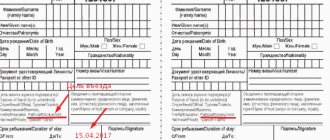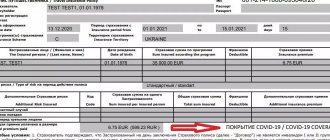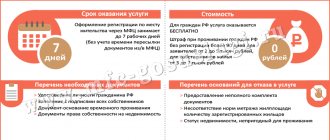Study abroad Higher education abroad Higher education in Israel
- Main universities of the country
- Higher education system and some features
- Cost of education at universities
- The main difficulties for students from the CIS
This article will examine in detail all the key features of education at universities in Israel. Specific point-by-point information will be provided about the main universities in Israel, the algorithm for admission to them, prices and difficulties in studying.
Main universities of the country
In total, there are nine institutions in Israel that are classified as “higher education,” conducting research and awarding academic degrees. The activities of universities and the quality of education are monitored by a special government body - the Council for Higher Education.
Tel Aviv University
The oldest major university in Israel is the Technion in Haifa. This is one of the main educational centers of the country, famous abroad. The total number of buildings on the territory of the university reaches 90. As the name suggests, the university has an engineering and technical focus. Education here is conducted at 17 faculties. Technion specialties include:
- Cartography;
- Electrical Engineering;
- Agriculture;
- Mathematics;
- Chemistry;
- Physics;
- Medicine;
- Architecture;
- Pedagogy.
And many others.
The Hebrew University of Jerusalem is successfully competing with the Technion for the title of largest university. It was founded a year later, but received university status earlier. It is also home to the large Jewish National Library. This university provides training in the following areas:
- Social Sciences;
- Humanitarian sciences;
- Natural Sciences;
- Medicine;
- Agriculture;
- Pedagogy;
- Jurisprudence.
Tel Aviv University in the city of the same name is the third contender for the title of the largest university in Israel. It operates more than 70 research complexes, including an astronomical observatory. There is also a School for foreign students, which allows you to take courses throughout the semester or year, as well as undergo exchange training. Tel Aviv University has 9 faculties:
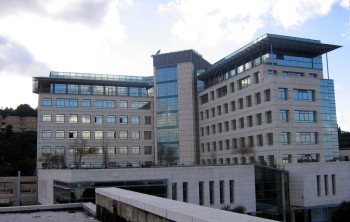
Technion University
- Humanitarian
- Exact Sciences
- Natural Sciences
- Social Sciences
- Arts
- Engineering
- Medical
- Business management
- Legal
Ariel University is located in the city of Ariel. This is the youngest university in Israel; this status was awarded to the institution in 2005. The university has a special educational project that allows Jews living outside Israel to study here for one or two semesters. List of faculties of the institution:
- Natural Sciences
- Social Sciences and Humanities
- Health Sciences
- Engineering
Three more educational institutions deserve special mention. The first is the Open University of Israel. A special feature of this university is exclusively distance learning. Also, this institution does not require any documents confirming your level of knowledge. There are no departments here - the student will “listen” to the course he has chosen directly.
The second educational institution is the Institute named after. Weizmann. Known for its scientific research in the field of biology, the university only accepts students who already have a bachelor's degree from an Israeli university. The language of instruction here is English.
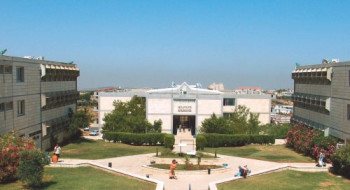
Open University
And the third university is the Institute named after. Wingate. He specializes in teaching physical education and sports. The institute is rightfully considered the best in the country in its field, there is a college, several research centers and a sports base for national teams.
What do potential migrants need to study and work in Israel?
Indeed, in order to get an education in Israel with subsequent employment, potential migrants need to study for a long time. There is also the opportunity to continue studies started in your home country. But for this you will have to try, because the migrant must prove that he knows languages well and not be afraid of many bureaucratic procedures.
In order to study at a university or get a prestigious position, a migrant will have to confirm his certificate or diploma. But then it will be possible to apply the knowledge in practice.
For example, there is a mandatory internship in Israel for pharmacists. Having passed it and proven yourself well, you can get a decent job (and not only doctors have such opportunities).
Confirmation of school certificate
It has already been said above that everyone who wants to get an education or get a job in Israel must have their certificate or diploma translated into Hebrew and notarized. Let’s dwell on this in more detail, because the process of processing documents is long and ends upon arrival in Israel.
So, the migrant needs to contact the Ministry of Education, one of the Diploma Evaluation Departments, which are located in the following cities:
- Jerusalem;
- Tel Aviv;
- Haifa;
- Nazareth Illit;
- Be'er Sheva.
If the visitor has the opportunity, he should contact the center in person, but documents can also be sent by mail.
If you have already completed your studies at a university, then you will need not only a diploma, but also a certificate of the disciplines studied. CIS citizens also provide a work book. And remember: Israel does not confirm certificates of incomplete higher education!
English level
The level of English language proficiency in Israel is assessed on a six-point scale - from 6 to 0. If the exam is passed with a grade of “3” or “2”, the applicant can be sure that he will enter the university. Moreover, the better the score, the greater the chances of admission; moreover, the highest scores obtained (1 or 0) exempt students from subsequent foreign language classes at the university.
By the way, if your English is not very good, and teaching is conducted in this language, you should not be upset. The fact is that almost every third teacher in Israel knows Russian. That is, you can always ask him for personal consultation.
Hebrew level
To enter an Israeli university, you need to know Hebrew at least at an intermediate (Gimel Dalet) level. However, sometimes a student is required to take a hey-vav exam, which is much more difficult. This is necessary to obtain education in such areas as:
- medicine;
- psychology;
- jurisprudence.
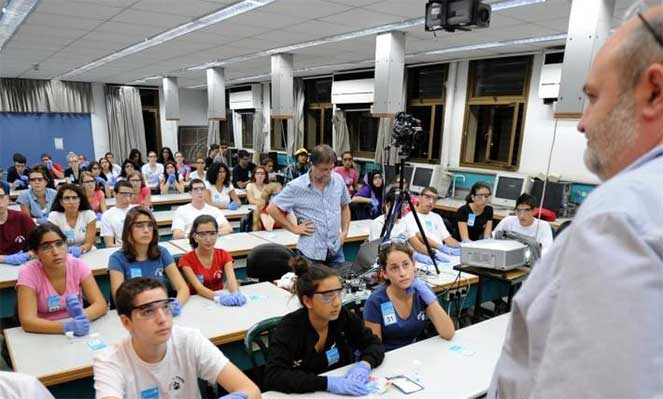
A visitor who doubts his knowledge can take Hebrew courses in Israel by submitting documents and enrolling in an ulpan. Classes here take place approximately 22 hours a week. The cost of training is approximately 4,000 shekels ($1,107).
Higher education system and some features
In general, education in the country’s universities is structured according to “Western” principles. There are three main academic levels: bachelor, master and doctor. Depending on the chosen direction, you will have to study for a bachelor’s degree from 3 to 5 years, and for a master’s degree – another 1-2 years. At the end of their studies, masters take a national exam and submit a thesis. To obtain a doctorate degree, you need to study for another 2-4 years, while completing your own research project. The universities listed above allow students to obtain all three degrees (the Weizmann Institute of Science is an exception).

For a high school student from the CIS, a school certificate alone will not be enough. Disappointment awaits students who have graduated from college or vocational school. The Israeli education system requires additional completion of preparatory courses in the country. This is not required only for those who have completed at least one course at a university in their country. Preparatory courses consist of studying the basic subjects required for admission to a university. These include Jewish history, English and (sometimes) Hebrew. Also, during the courses, future students prepare to take a special test on knowledge of English, general level of development and logic (it can also be written in Russian).
As a result, for admission a student must:
- Complete preparatory courses;
- Pass the test (scoring at least 400 points out of 800);
- Know Hebrew at a level not lower than “intermediate”;
- Know English at the same level.
But certain specialties have their own conditions. Thus, the fields of psychology, medicine and law require knowledge of Hebrew at a higher level. The same specialties also require an additional interview in Hebrew. Engineering and technical faculties require an exam in physics and mathematics (one exam for two subjects) as a condition for admission. To enter the creative professions, you will have to pass a competition by providing your examples of work.
In addition, students without Israeli citizenship (in fact, without Jewish roots) should not think about enrolling in medical universities. Only citizens of the country are accepted there.

Preschool education system
The Israeli education system differs from many others in that children here begin to study almost from birth. You can enroll your baby in kindergarten when he is only 3 months old (although this will cost money - free kindergarten is provided for older children). The popularity of preschool education has led to the emergence of many forms of education, such as:
- maon (nursery) - municipal or private institutions in which a group of 15-20 children is formed under the supervision of 2-3 teachers, while children can play on their own playground;
- mishpakhton (nursery at home) - cozy institutions located in the apartments of qualified teachers, where 5-8 pupils can receive education at the same time;
- Gan Yeladim (kindergartens) are private or public institutions that educate up to 35 children at a time. As a rule, their age is from 3 years and older;
- tsaaron (extended day groups) - educational programs that imply the stay of children of working parents in kindergarten until 18.00 with the opportunity to have lunch and attend additional classes;
- Kaitana (summer kindergartens) are quite expensive, but very convenient institutions where you can leave children until 18.00 during the holidays, when regular kindergartens and nurseries are closed.
As a rule, the youngest are enrolled in kindergartens in the spring, after the Passover holiday, and children over 3 years old are enrolled in municipal institutions in the winter, and it is possible to enroll a child in the senior group of a kindergarten for free. Of course, private institutions will gladly take a child at any time of the year, but for this you will have to pay a significant amount.
So, if a “city” kindergarten costs only 75 shekels ($20) per month, then an extended day group costs up to 1000 shekels ($277), and a summer camp costs twice as much. Naturally, there are kindergartens in Israel for Russians, but they also do not work for free.
Almost all establishments for children are open from 7.30 to 18.00 from Sunday to Thursday (some also on Friday).
Groups in kindergartens are formed “by year”, that is, for children from 1 year old there is one group, from 2 years old – another, etc.
If you often visit or already live in Israel, visit exhibitions on preschool education, during which presentations of private nurseries and kindergartens are held.
Cost of education at universities
First of all, it is worth knowing that foreign students pay more tuition fees than Israeli citizens (by 25%). The cost of training in this case varies. It depends on the chosen university, specialty and financial situation of the student. Thus, for bachelor’s programs at large universities in the country, the price for two semesters of study is about 30 thousand shekels (approximately 390 thousand rubles). In less prestigious specialties or at provincial universities, the price drops to 10 thousand shekels (130 thousand rubles).
Those wishing to continue their studies in a master's program will have to shell out more money. The minimum cost (not prestigious programs or universities) is only slightly more than the price for a bachelor's degree - 13 thousand shekels / 170 thousand rubles. But the maximum is more than 50 thousand shekels or 650 thousand rubles.
Students from low-income families (including foreigners) have the right to apply for a loan with low interest rates. Considering that it is not prohibited to work while studying at a university or institute, this option seems optimal for poor people. It is important to know that such a loan is provided only to first-time applicants (for a bachelor's degree). Masters and doctors cannot receive financial assistance from the state.
Officially, there is no free higher education in Israel. However, the so-called “new immigrants” - young people with Jewish roots immigrating to Israel - can enroll in a university under a special support program. It provides for full or partial financial compensation. Foreigners can also receive a scholarship for their achievements in science or art, but this type of support does not fully cover the cost of training.
School education
After graduating from kindergarten, Israeli children go to school. They have 12 years to master the general education program. In this case, school education is divided into three stages:
- primary school – grades 1-6 (children from 6 to 12 years old are taught);
- secondary school – grades 7-9 (from 12 to 15 years old);
- high school, or Tikhon - grades 10-12 (15-18 years old).
It is not necessary to go to quiet school - a teenager who has turned 16 years old can transfer from school to a technical school or even go free. At the same time, young people who decide to leave school can transfer for free. Naturally, this applies only to government institutions, including those with a religious bias.
For private schools you have to pay quite a lot - up to 30 thousand shekels ($8307) per year. However, this makes sense, especially if the parents work a lot. When mom and dad cannot pay much attention to the child, the best option for him is a boarding school in Israel (for example, Atid Raziel in Herzliya). A private educational institution is also indispensable for migrants who are interested in whether there are Russian schools in Israel and want their child to study in their native language (this will be discussed in more detail below).

School classes begin every year on September 1 and end on June 20 or 30 (depending on the class). Schoolchildren study from 8.00 to 13.00 or 14.00 - again depending on age. During the year, children go on vacation four times:
- in the spring - during the celebration of Easter;
- in summer - from late June to August;
- in the fall - in September or October (the week of Sukkot celebration);
- in winter - in December (the week of Hanukkah).
Information for migrants from CIS countries
Visiting children, with the exception of high school students, are assigned to classes by age, not by language level. At the same time, migrants and repatriates have the right to attend additional classes in Hebrew, English, literature and reading sacred texts (Tanakha). Teenagers aged 16-18 years can go to the “junior” class in order to have time to prepare for the matriculation exam.
It is easier for a person from the CIS, in particular from Russia or Ukraine, to get a good grade on a 100-point system if he studies in a “Russian” school, such as:
- a school at the PP (Embassy) of the Russian Federation in Israel (in everyday life - a school in Tel Aviv for Russians) - here they speak Russian and take the usual State Exam and Unified State Exam, relax during Russian public holidays, participate in numerous competitions and festivals;
- "Gordon" school in the city of Petah Tikva - almost all the teachers of this educational institution are born citizens of the USSR, so if a student does not understand something in Hebrew, asking again in his native language will not be difficult;
- Russian-language schools in Israel in Rishon.
In addition, the Reali School in Haifa, an educational institution with a 100-year history, is very popular. Here, the teachers, alas, do not speak Russian, Ukrainian or Belarusian, but the child can receive a very high-quality education - a certificate from this institution is even an advantage in interviews. However, there are always few free places there, and in order to enter, the student must pass the entrance test well.
The main difficulties for students from the CIS
The main difficulty may be the language barrier, but preparatory courses and summer schools solve this issue quite effectively. The problem of finance, as already indicated, is partially solved by the availability of scholarships. However, coupled with the need to pay for housing, students may have no choice but to take out a student loan. Lack of Jewish roots seriously complicates the admission and education process in terms of cost, scholarship opportunities, and participation in educational programs.
Repatriate training programs
Jews who do not live in their historical homeland, but wish to return there, have special rights to receive education. Such people are called repatriates, and they can enjoy benefits until they obtain citizenship and find a job. At first, they can take courses for new immigrants in Israel.
Visitors of any age can enroll in the courses for free or for only 200 shekels. There are specialized schools in almost all major cities. Therefore, repatriates actively visit ulpans in Jerusalem, Tel Aviv, and Haifa. Intensive Hebrew learning programs are developed by reputable organizations such as the aforementioned MASA and NAALE, so diligent students master the language quickly.
Higher education in Israel: 3 comments
- Anonymous
:
29.10.2020 at 13:10
First you will go through the army.
Answer
- Irina
:
06/18/2020 at 15:01
Good afternoon. Please tell me, I am a citizen of Israel, but I temporarily live abroad. This year I graduated from 11th grade. If I finish one semester here, will it be possible to immediately enroll in the second year in Israel, or will I need to re-enroll in the first?
Answer
Alyona
:
12/16/2020 at 21:10
Of course, you will need to enroll in the first year.
Answer
Educational system of Israel
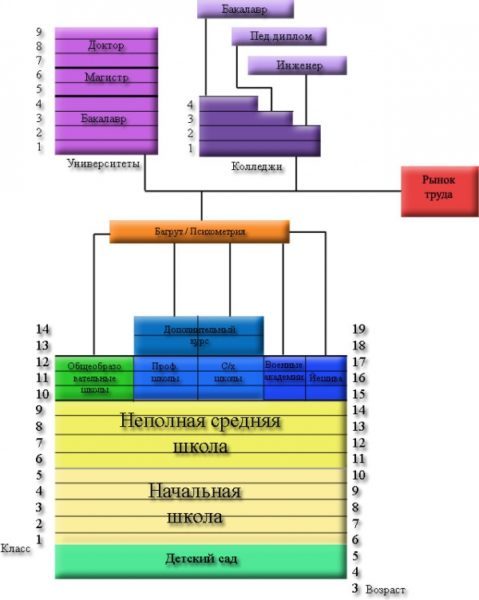
In the modern world, competition is very high, therefore, in order to take a worthy place in it, a person must have deep knowledge and skills in the chosen field of activity. The education system in Israel is structured in such a way that citizens of the country, while studying at school and university, have the opportunity to develop their abilities to the maximum and obtain the profession for which they are best suited.
Preschool education
As soon as the child begins to move independently, he is given the opportunity to communicate with his peers. He receives preschool education in a nursery, and then in a kindergarten, which are public and private.
Nursery
They are located in buildings specially built for this purpose, where children have the opportunity to stay every day (except Fridays) from 7.00 to 16.00. Here they are provided with three meals a day and are given the opportunity to nap during the day. The nursery is designed for children under three years of age. Each group has from 15 to 20 guys.
Family kindergartens
Those parents who want their child to receive more attention have the opportunity to send him to a family kindergarten. Almost any woman who is a citizen of the country can organize it. To do this, she only needs to obtain the appropriate permission. The number of children in such a kindergarten does not exceed five people. The cost of staying there is around 1,500 shekels, but parents with low incomes can take advantage of a discount system.
School education
There are four types of schools in Israel.
- State. They are the majority; training is conducted according to the programs of the country's Ministry of Education.
- State-religious. These institutions provide in-depth study of Judaism.
- Religious. These are private schools, many of whose graduates become clergy in the future.
- Arabic. Palestinian children wear them.
Every resident of the country has the right to receive free secondary education. You will have to pay certain amounts for textbooks, as well as for the opportunity to attend additional classes in clubs, if the child so desires. The annual costs in this case do not exceed 1,000 shekels. If a child is raised in a single-parent family, these expenses are borne by the state.
Classes in Israeli schools, as in Russian ones, last from September to June. During the year, students have holidays that coincide with major religious holidays. School education in the country consists of three levels: primary, intermediate and secondary. Moreover, each of them should be completed in a separate educational institution.
Initial
This period of education takes six years: children start school after kindergarten at the age of six and finish it at the age of twelve. From the very first grades, an in-depth acquaintance with Hebrew begins here; as a result, all children who have received primary education speak this language fluently, and also know how to read and write. In addition, there are:
- English language;
- mathematics;
- natural history;
- Traffic Laws.

In addition, during their stay here, each child gets the opportunity to learn to play one or more musical instruments. What distinguishes an Israeli elementary school from similar institutions in other countries is that students are not graded and there is no homework.
At the end of the third grade in primary school there is an examination, during which the degree of giftedness of each child is determined. Those who successfully pass it have the opportunity to continue their studies in institutions for children with increased abilities. There they will have the opportunity to study in depth the subjects to which they are inclined.
Intermediate
Studying at such a school takes three years, and teenagers between the ages of 12 and 15 continue their education there. To those subjects studied in the first grades, a second foreign language is added, as well as geography, history, natural science and law.
In schools at this level there are councils, which, in addition to teachers, also include parents. The competence of this public body is quite broad. In particular, he has the right to introduce additional subjects into the curriculum of the educational institution. Knowledge is assessed using a 100-point system. If it turns out that the level of preparation of children in one class varies too much, then they can be divided into two or more groups, and the same material will be presented in different ways. This is done to ensure that all children succeed and there are no lagging behind in the class. After graduation, the graduate receives a certificate entitling him to continue his studies at the chosen institution.
Read also: Do Russians need a visa to Israel in 2021 Prices for apartments in Israel
Average
All third-level educational institutions in Israel are specialized; children enter them based on their abilities and who they want to become. Secondary educational institutions are of the following types.
- General education in the humanities and natural sciences. They do not provide a specialty, but they allow you to prepare for admission to one of the universities in the country.
- Professional. In them, along with general knowledge, you can get a working specialty.
- Agricultural. They operate on the principle of boarding schools and graduate specialists in the field of agronomy.
- Military. They train junior officers for the Israel Defense Forces, as well as specialists for servicing military equipment.
- Yeshivas. These are educational institutions of a religious orientation, where the main focus is on issues of Judaism.
In the 11th and 12th grades of the school, students have the opportunity to take the matriculation exam. This document is not mandatory, but without it it will be impossible to obtain higher education in the future.
Exams must be taken in the following subjects:
- Hebrew;
- knowledge of the Torah;
- English language;
- mathematics;
- literature;
- civil law.
For those who were unable to complete high school on time, there are evening educational institutions in Israel. Their training lasts four years, and during the last two years, students must attend classes only three times a week.
Higher education
Every second citizen in the country has a university degree. Higher education in Israel, as in other developed countries, is necessary for those citizens who want to succeed in their chosen field of activity. Its system in the country is the same as in the USA. It consists of three levels.
- Bachelor's degree. To obtain a bachelor's degree, 3 years of university study are required.
- Master's degree. The right to a master's degree will be given to those who, after graduating from a bachelor's degree, study at the university for another 2 or 3 years and successfully pass the exams.
- Doctoral studies. It is equivalent to graduate school in our country and is considered completed after defending a dissertation, which takes from two to four years.
To be eligible to study at the university, an applicant must not only have a matriculation certificate, but also pass a psychometric test. It is conducted by the country's Center for Examinations and Statistics and consists of 165 tasks. During the testing process, the applicant’s ability to think logically, solve mathematical examples is tested, and the degree of proficiency in the English language is also assessed.
The minimum number of points that can be scored as a result of passing the test is 200, the maximum is 800. As a rule, 400 points are enough for admission, however, the more prestigious the university, the higher the passing score. You can repeat the test every 6 months. The results obtained are valid for 7 years.


